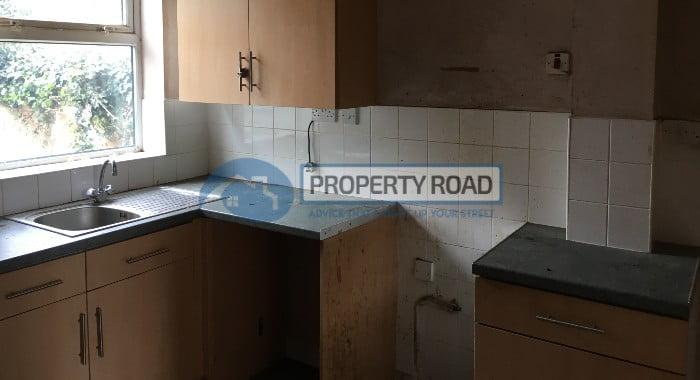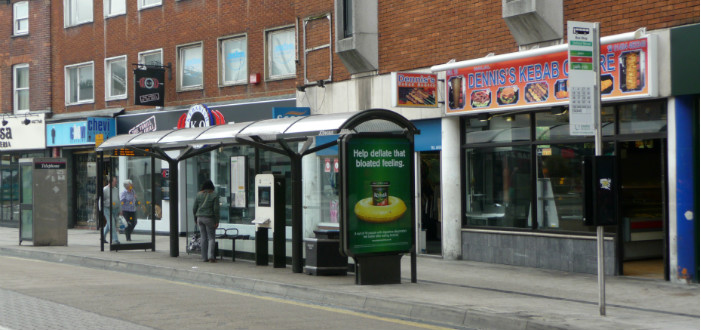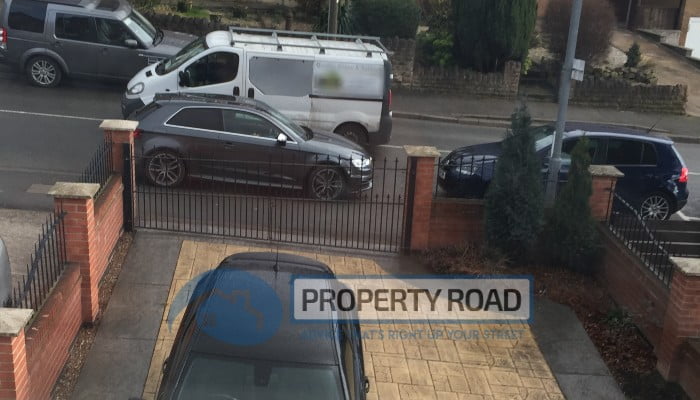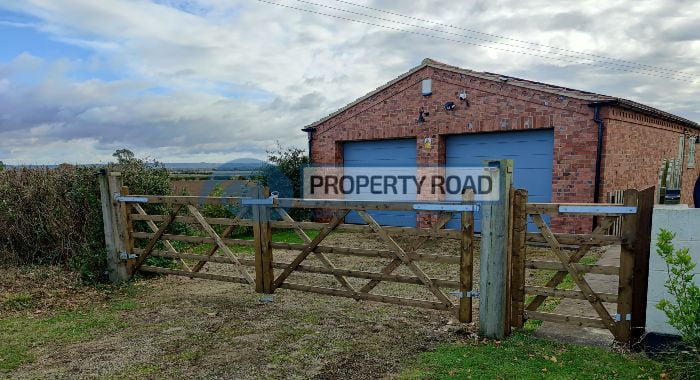It’s a common question estate agents get asked. What affects the price of a house?
If you are selling or buying property, then it’s good to have at least a basic understanding of the factors that can influence house prices. You’ve heard the phrase that it’s all about location, location, location, and to a large degree that’s spot on. However, it doesn’t quite tell the full story.
House prices are affected by a number of things. Some play a bigger part than others. Some affect properties more in one part of the country than another. But ultimately, they all have some kind of an effect.
So, let’s have a closer look at what affects the price of a house based on our experience of buying and selling multiple properties over the last couple of decades. This is by no means an exhaustive list, but it does cover the main factors.
1) Supply & Demand
Perhaps one of the biggest factors, the number of properties up for sale, and the number of buyers competing for them, has a major effect on the value of a home.
Generally, if there are more buyers than sellers, values will go up. If there are more sellers than buyers, the values will come down.
Aside from this, a paper by Xu & Tang (2014) took notice of the biggest housing bubbles in the late 1980s and the 2008 crisis, which were the best times to buy a property.
We were lucky enough to be able to buy our first home during a recession when demand was low. This meant we got a really good price. We then sold it a few years later when the market had improved, and we made quite a lot of money on it, which allowed us to have a bigger deposit on the next home.
We’ve also had the flip side, buying our current home just after the pandemic when there was high demand but low supply. This meant we had to move quickly when we found our dream property and didn’t get as good a price on it as we would have liked.
Still, it did mean we were able to sell our home for a good price, so really, it didn’t impact us a huge deal.
Selling A Property? FREE Step-By-Step Platform
2) Property Condition
The condition the house is in will have a major bearing on the price it could potentially sell for. A house in near perfect condition is likely to attract a much higher price than a comparable property that still needs a lot of work doing.
Check out our guide to the most common problems with auction properties to see what could reduce the value of a house (even when not sold by auction!). Any problems you spot could be used to negotiate a lower purchase price.
We’ve always made sure the properties we sold were in as good a condition as possible. For example, in our first home we didn’t have the funds to replace the tired kitchen, so we gave it a lick of paint instead.

This was a cheap way to show the property had been taken care of and was in good condition, even if it wasn’t all brand new inside. It allowed us to maximise our sale price without spending a fortune.
Equally, if we’ve looked at a house that needed work doing, we’ve always been sure to use the cost of that work as a negotiation point to help us get a lower offer accepted.
3) Local Schools
This is a big one if you are selling or buying a property that’s likely to appeal to families. The performance of local schools will have a bearing on how much a house sells for.
Buyers treat schools as an amenity. This is even more apparent in a 2014 study by Schwartz et al. that focused on choice schools raising property values as high as 2.2% in New York neighbourhoods.
Therefore, it’s important to keep an eye on the Ofsted reports on nearby primary and secondary schools. Generally, the better the Oftsed ratings, the higher the property prices in that area. Some sites such as Rightmove include a ‘SchoolChecker’ as part of the property details.
As we don’t have kids, the proximity to a good school hasn’t really factored in our decision-making much. However, we’ve still always checked the local school performance simply because we know that could have a knock-on effect when we come to sell the property.
4) Local Infrastructure
Changes to local infrastructure can affect property values both positively and negatively. As an example, the planned high-speed railway (HS2) is set to have both negative and positive effects on house prices.
Those backing directly on to the new line may find their property values decrease from the extra noise created. Those living far enough away not to be inconvenienced by the line, but close enough to be able to easily use it, may find their property values rise as their house becomes more attractive to commuters.
We viewed a property close to a proposed HS2 hub but decided against making an offer as we felt it was a little too close for comfort. If others who viewed it thought the same, there’s no doubt that will have negatively affected the value of that property.
5) Flooding

You might think that properties in areas hit by flooding events would see their values hit quite hard for a long time.
However, properties hit by flooding only suffer from a temporary reduction in value. Even those at the lowest end of the price spectrum can retain their original value after six to seven years (Beltrán et al., 2019).
Still, there is some effect immediately after flooding, so if your property has been hit in the last three years, you may want to hold off selling for a short while.
While we have never been unfortunate enough to have been completely flooded, our garage was flooded during a freak storm when we lived at our first property.
After the flood, we put in several flood defence measures to ensure it couldn’t happen again. However, we have no doubt just the fact it had been flooded will have put some people off and potentially affected our property value.
When we are buying, we always pay close attention to flood risk reports, so we can avoid a repeat (or worse!) of our experience in our first home. We’ve always avoided any properties classed as a high flood risk. If others are doing the same, that will negatively affect the value of these properties.

6) Property Size
It isn’t just the overall footprint of your house, it’s also how you use the space that affects the price of your home. En-suites are seen as highly desirable, so if you have the opportunity to create one it can add value to your property.
But, be careful about losing a bedroom when changing the layout of your home. Going down from a 3 bed to a 2 bed, or a 4 down to a 3, or so on, can negatively affect both the value and attractiveness of your property to potential buyers.
Generally, the more rooms the better when it comes to bedrooms, and an upstairs bathroom is a must. A lot of the other decisions (such as whether you have an open-plan kitchen or not) will come down to personal preference. We’d suggest checking with an estate agent before you change the layout of your home to be sure what effect it’s likely to have on the value of your property.
While a bigger house will command a higher price, the layout can also have an impact. We found that when we sold our previous home, the layout negatively affected the price. It was a five-bedroom house, but its layout just didn’t work for most people.
The house was a dormer bungalow, which means that it had most of the rooms on the ground floor, except the master bedroom and a smaller bedroom, which were in the converted loft space.
For us, the house was perfect when we bought it, but when we came to sell it, we got so many people saying the layout just didn’t work for them.
The problem was that the three good-sized bedrooms were downstairs, while the master bedroom with en-suite together with a small bedroom, also en-suite, were upstairs.
Anyone looking for a bungalow, was put off by the master bedroom being upstairs. The number of bedrooms meant that our house would have made a great family home.
But most parents with younger kids were put off by the fact that the master bedroom was upstairs, while their kids’ rooms would have been downstairs.
This reduced the amount of potential buyers by a lot, which meant that it negatively impacted on the price. While we did find a buyer, we had to accept a lower price than we hoped, due to the issues with layout.
So if you are considering to extend your home to increase the house value, it is worth thinking carefully about the effects the layout changes might have. Ask yourself, who are the likely buyers and what layout would they want.
Otherwise, you might spend a lot of money with the aim to increase the value of your home but end up decreasing it.
7) Potential for Improvement
While many buyers are looking for a property they can move straight into without having to do any work, some buyers prefer it if they at least have the option to carry out some work themselves. This way, they can ensure it’s done exactly to their own preferences.
So, think carefully about adding on extensions, conservatories, etc. Yes, they will probably add value to your home, but they will restrict the options for future owners. They may also make your property ‘too good’ if it’s already quite highly valued for the area.
When we were looking for our current home, we saw a house we really liked. While the kitchen wasn’t to our taste, it looked good enough to live with it until we could afford to redo it.
After we saw it once, it took quite a while for us to have a second viewing. We were surprised to see that the owner decided to spruce up the kitchen. Probably because she thought that it would make the house look more appealing.
The problem was that to us, it now looked worse than before. While this is a subjective opinion, and other potential buyers might prefer it, it did put us off. It wasn’t a complete refurb, just some small changes. But it turned a kitchen we were happy to live with for a while into one we wanted to redo immediately.
It was well-intentioned, but when we looked at the house online, we already knew that we would have to redo the kitchen. But we thought we could wait. Now we had to account for refurbishing the kitchen sooner, so the price we were prepared to offer was lower than before.
In the end we decided against making an offer on the house and while there were other reasons, this did also play a part.
So if you decide to make improvements, you need to consider what affects the price of a house and ensure that any improvement won’t affect it negatively.
8) Property Features
The exact specification of your property will also affect its value. For instance, if you have a double garage, whereas your neighbours all have single garages, your house is likely to be worth a little more.
Having new double or even triple glazing can also bump up your house price, and period features can also have an effect.
One type of feature that will increase the price of your home are energy efficiency features. Solar panels, batteries and heat pumps are all high in demand at the moment. And because the installation can be costly, many buyers look for homes that already have them.
The previous owners of our current home put up solar panels, which is something we were planning to do. Because it was already done, we were willing to offer a higher price than without them.
However, you have to be aware that certain energy-saving technologies can also negatively affect your home’s value.
A study on wind farm proximity to residential developments in England and Wales determined that areas within 2 km of visibility suffered up to 5-6% in reduced prices (Gibbons, 2015).
This is further supported by Sunak & Madlener (2016) found that properties in Germany with an extreme to medium view of a wind farm recorded a 10-17% decrease in price.
Knowing what affects the price of a house can help to make the right decisions when it comes to adding features to your property.
9) Local Amenities

How close you are to a shop or a bus stop can also have an impact on the value of your home. Equally, how often the local buses run could also be a factor, especially if your property is likely to attract people without their own transport.
Additionally, if your property is close to green spaces, you may expect an increase in its value. Chrysanthou (2016) determined that urban residents may even pay a premium for developments in the proximity of a public green area with a water feature.
We once lived directly opposite a bus stop that was on the main route into town. We found this incredibly convenient, and it definitely made the property appeal to us more. Now we live in a more remote rural location, having any kind of bus service running near us is a distant dream!!
10) Parking Arrangements

Whether you have a garage, a carport, or a driveway is likely to affect the value of your house. How many cars you can park is also important as many households now have multiple cars.
If there are no parking arrangements at your property, then the ease of on-street parking could also affect the price you can sell for.
On one of our previous properties, parking was often an issue due to the near proximity of a pub and a school. Sometimes we would end up with our drive completely blocked by inconsiderate parking. No doubt this is a factor that people will consider.
In fact, we sold a property once that had no garage and only a small off-street parking area big enough for one car.
Even though it would have been fairly straightforward for someone to make the area large enough for two cars, we still had people say they loved the property but couldn’t put an offer in as they had more than one car.
So, our experience has certainly shown the value people place in the parking arrangements of a property.

So, What Affects The Price Of A House?
As you can see, when looking at what affects the price of a house, there are a number of factors to consider. However, they are almost all linked to location. That’s why some places, such as Cheltenham in 2017, find their house prices rise more quickly than others.
If you want to know the true value of your property, the best way is to get a proper valuation carried out by at least 2-3 different estate agents.
Take the average price of all three valuations and that will be around the price you could expect your property to sell for. The agents will also be able to give you more information on the effect of the above factors on your property.
Of course, after all this, your house is only worth what someone will pay for it. So, until you list it for sale, you’ll never actually know it’s true value!





